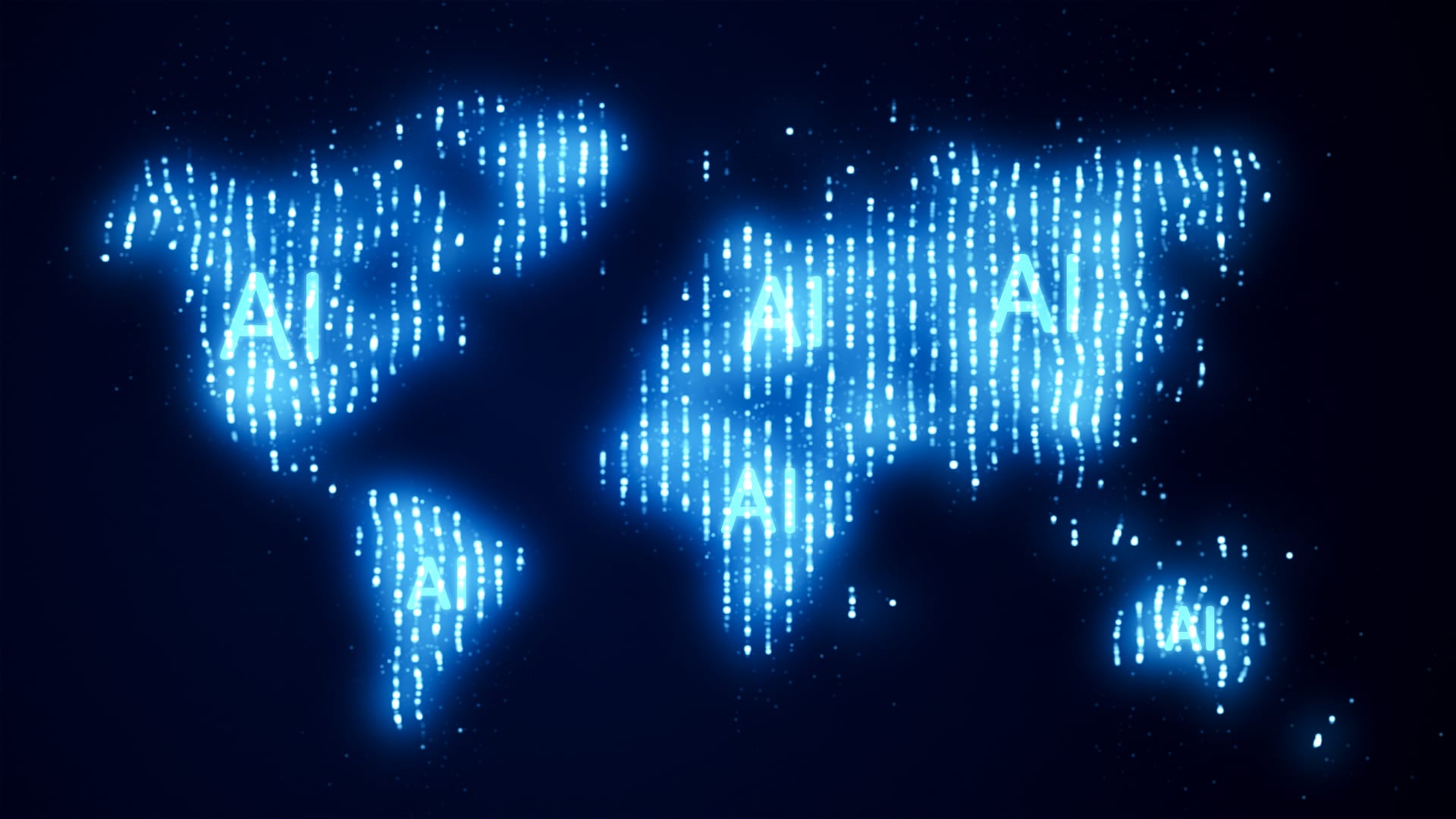Physical Address
304 North Cardinal St.
Dorchester Center, MA 02124
Physical Address
304 North Cardinal St.
Dorchester Center, MA 02124

Digital illustration of a brilliant world map with “AI” text on multiple continents, which represent the global presence and integration of artificial intelligence.
Photographic | Moment | Getty images
As artificial intelligence becomes more democratized, it is important that emerging economies build their own “sovereign,” panelists told CNBC East Tech West Conference In Bangkok, Thailand, Friday.
In general, the sovereign AI refers to the ability of a nation to control its own technologies of AI, data and related infrastructure, ensuring strategic autonomy while satisfying its unique priorities and security needs.
However, this sovereignty has lacked, according to the panelist Kasima Tharnpipitcai, head of the IA strategy in SCB 10x, the technological investment arm of the SCBX group based in Thailand. He pointed out that many of the world’s largest language models, operated by companies such as Anthrope and OpenAi, are based on the English language.
“The way you think, the way you interact with the world, the way you are when you speak another language can be very different,” said Tharnpipitcai.
Therefore, it is important for countries to take possession of their AI systems, develop technology for specific languages, cultures and countries, instead of translating on English -based models.

The panelists agreed that the Asean region with digital knowledge, with a total population of almost 700 million people, is particularly well positioned to build its sovereign. People under 35 years old About 61% of the population, and about 125,000 new users Get Internet access daily.
Given this context, Jeff Johnson, managing director of ASEAN in Amazon Web Services said: “I think it’s really important, and we are really focused on how we can really democratize access to the cloud and AI.”
According to panelists, a key way in which countries can build their sovereign environments is through the use of open source AI models.
“There is a lot of incredible talent here in Southeast Asia and Thailand, especially. Having that captured in a way that is not publicly accessible or in the development of the ecosystem would feel a shame,” said Tharnpipitcai of SCB 10x.
Making open source is a way to create a “collective energy” to help Thailand to compete better in AI and push sovereignty in a beneficial way for the whole country, he added.
The open source generally refers to the software in which the source code is available for free, which allows anyone to see, modify and redistribute it. LLM players, as Deepseek and Meta’s call from China, announce their models as an open source, although with some restrictions.
The appearance of more open source models offers companies and governments more options compared to depending on some closed models, according to Cecily NG, vice president and general manager of ASEAN & Greater China of Software Provy Databricks.
IA experts have He told CNBC previously That open source AI has helped China boost the adoption of AI, better develop its AI ecosystem and compete with the United States
Premate Pavan, vice president and general manager of Southeast Asia and Korea in Red Hat, said that the location of AI had focused on language until recently. Having sovereign access to local hardware and computer models is more important today, he added.
Panelists said that for emerging countries such as Thailand, cloud computing companies can offer the location of AI with national operations. These include global hyperscalers such as AWS, Microsoft Blue and Tencent Cloud, and sovereign players such as Ais Cloud and True IDC.

“We are here in Thailand and throughout Southeast Asia to support all industries, all companies in all forms and sizes, from the smallest startup to the largest company,” said Johnson of AWS.
He added that the economic model of the company’s cloud services facilitates “paying for what we use”, thus reducing entry barriers and facilitating the construction of models and applications.
In April, the UN trade and development agency said in a report It was projected that AI would reach $ 4.8 billion in market value by 2033. However, it warned that the benefits of technology remain highly concentrated, with nations at risk of delaying.
Among the recommendations of UNCTAD to the international community to boost inclusive growth, the AI infrastructure was shared, the use of open source models and initiatives to share knowledge and resources of AI.